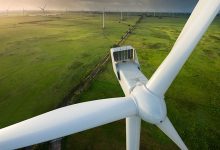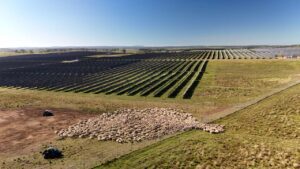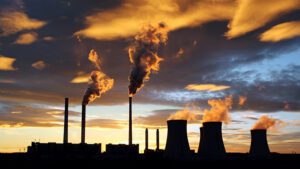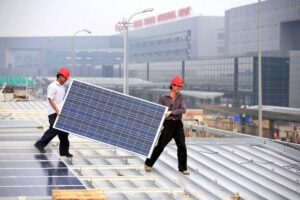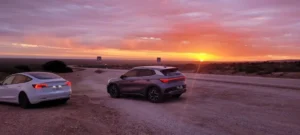The new head of Vestas in Australia and New Zealand, Danny Nielsen, has warned that Australia faces a renewable energy skills shortage, as the roll out of bigger and more complex wind and solar projects is ramped up to populate renewable energy zones and meet state targets.
Speaking at the Clean Energy Council’s Wind Industry Forum on Thursday in Melbourne, Nielsen – a veteran of the wind industry and of Danish wind giant, Vestas – said Australia had all the ingredients to be a renewable energy superpower, including in offshore wind.
But to realise all of this renewable potential at the speed required to replace outgoing coal power and meet Australia’s climate commitments will require ready access to hundreds of thousands of skilled workers – a workforce Australia doesn’t currently have.
“Australia has … the capacity to be what we call a clean energy superpower, across all technologies and generator types,” Nielsen told the conference.
“[But if] this world class hub… in Australia is going to kick off, we’re not going to need 25,000 more people, right? We’re going to need 250,000, 300,000 people.
“[A major] challenge for the industry is that we actually need a workforce that can meet the current demand for what we’re doing in renewables,” Nielsen said.
“It’s just going to be an incredible amount of work that needs to be done to get that talent in and get them trained to to help drive the industry where we need it to be in the years to come.
“So we are facing a skill shortage in Australia and that means that you …can get quality issues in the industry because the skill sets are not there.”
The call comes as Australia’s two major parties gear up for a federal election, where a big part of the battle will be fought over climate, the energy transition and jobs.
As RenewEconomy reported last month, the Morrison government has so far rolled all of those issues into a tediously familiar scare campaign, claiming that the rapid pashing out of coal and gas projects would cost tens of thousands of jobs in certain states, like Queensland.
This contrasts sharply with the approach of the Conservative government in the UK, which under Boris Johnson has committed to tip billions of government funds into the green economy over the coming decade and create as many as 440,000 new jobs from emerging green industries.
Australian researchers have predicted similar job creation numbers could be seen here, including in a report published in October last year by the Australian Conservation Foundation, WWF Australia, the union group ACTU and the Business Council of Australia.
That report estimated that a renewable energy export industry built around renewable hydrogen and ammonia production, alone, would create almost 400,000 new jobs.
And the groups behind the report issued a joint call for five core actions from governments, including a $5 billion fund to support workers transitioning into new industries.
“With smart investments, it is regional communities, particularly those that currently depend on carbon-intensive industries, that stand to benefit the most from Australia becoming a renewable export superpower,” said WWF Australia president Martjin Wilder.
“As our international trading partners work to meet their climate targets, there will be voracious demand for renewables and zero-carbon commodities. Our federal and state governments need to work together with the private sector to take advantage of this growing demand, creating new jobs and investment opportunities.”
At the Wind Industry Forum, Nielsen said that while policy was crucial to fill the skills gap, industry also had a collective responsibility to engage with universities and schools to get the next generation into the renewable sector.
“Because we need to close that gap to grow … our industry,” he said. “And then, of course, with that also comes policy certainty, as we talked about, from a federal level, because people also go in to industries where where they can see… there’s a long term future there.”

